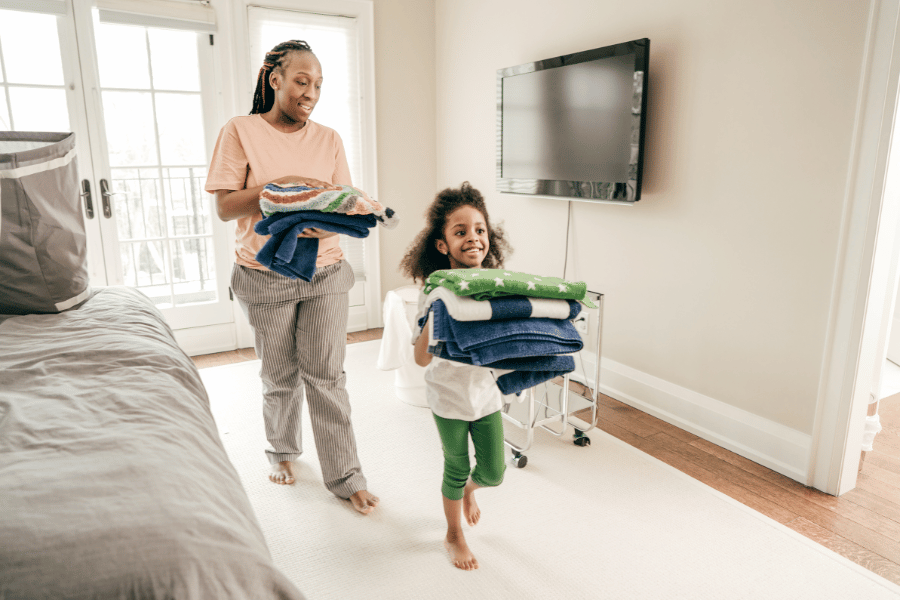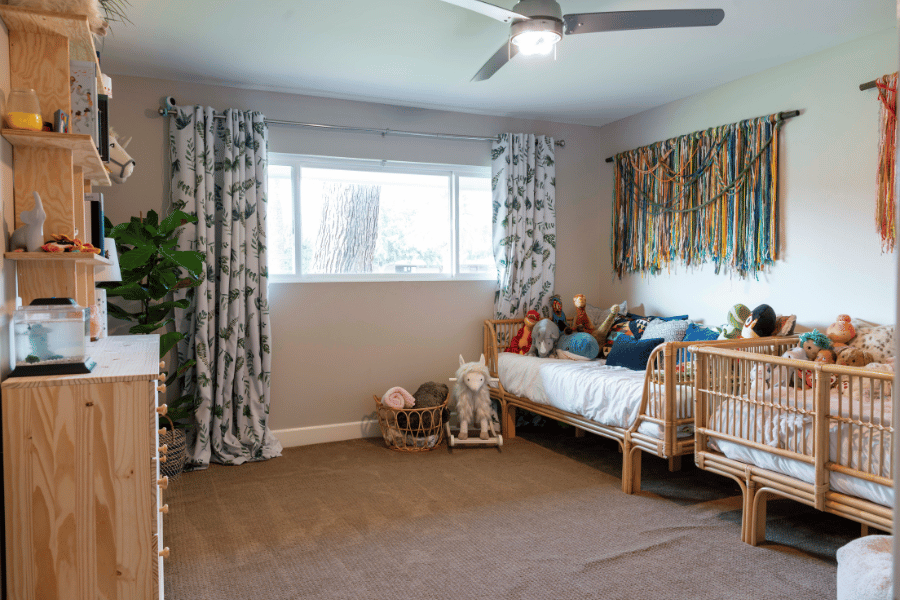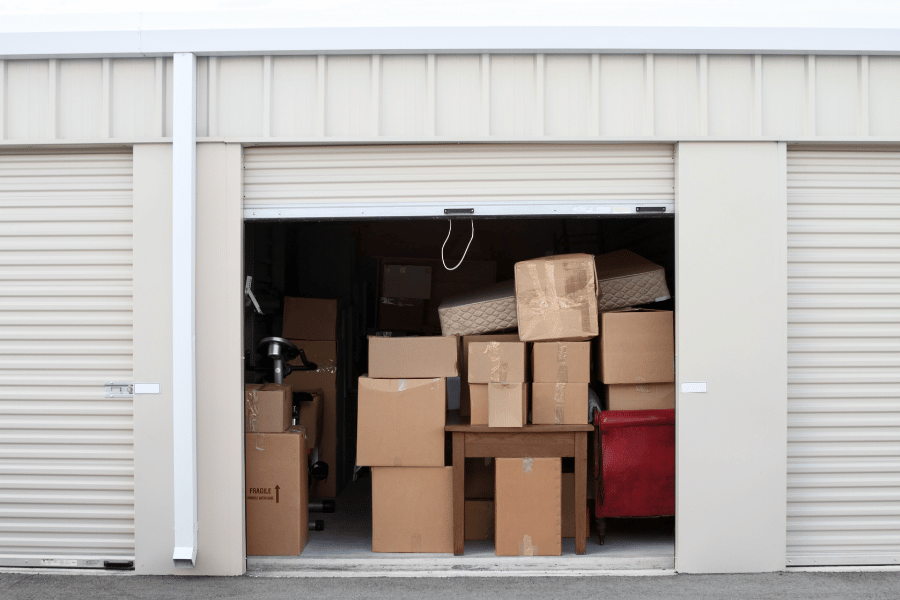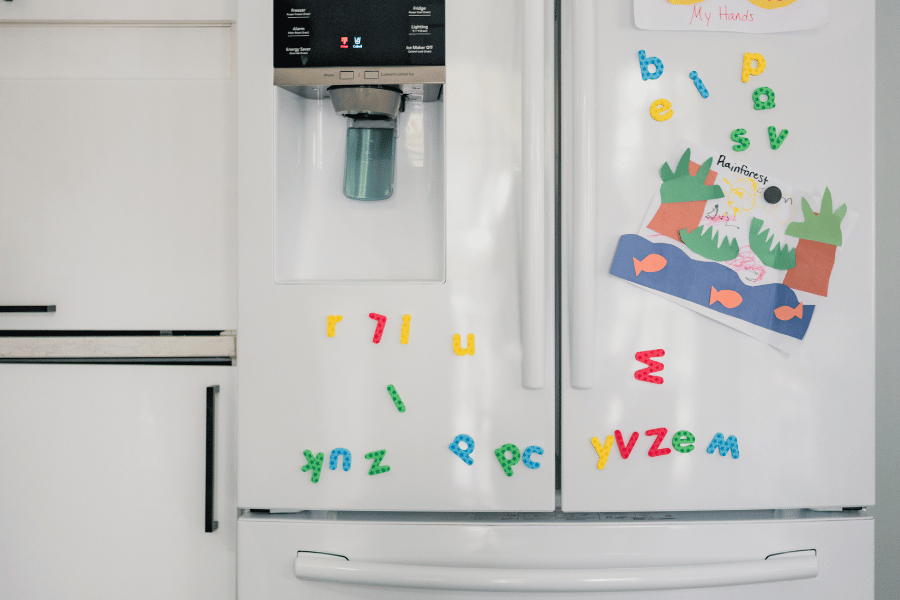Selling a Home With Kids
Are you selling a home with kids? Here are seven tips to know before selling a home with kids!
There is a right way to sell a house and a wrong way to sell a house, but how you proceed is your decision. In this article, we will review tips to help you sell your home, even with kids posing a challenge.
Selling your home can be stressful. You want to ensure the entire process runs as smoothly as possible. Adding kids to the equation makes things even more difficult, as can selling a home during a divorce or with pets.
So, let's dive into some tips on how to sell your home with kids.
1. Make Sure the Kids Understand
One of the best things you can do is to start by letting your kids know how important it is that you sell your home. Sit them down, and turn it into a 'game' for them. If Mommy and Daddy sell the house within 30 days, we will spend a day at the toy store or something along those lines. Know what motivates your kids, and propose it in a 'game' format.
Develop a list of actionable items for your children to accomplish with each home showing request and open house. When the items are completed, reward them, and they will continue associating positive feelings with helping.
You'll also be surprised how far gratitude goes with children. When your kids realize your appreciation of their efforts, they will work even harder. Adults are the same way. Everyone also loves a feeling of accomplishment, and gratitude is a great way to ensure your children feel accomplished.
One thing to be careful of is that children may not react well to change, especially if they have to change daycares or schools. Especially since it's a parental decision, not one they chose for themselves. This is where a trust factor comes into play. If you break the news to your children, you will want to do so in a positive environment. You may even want to bring up a previous change in which they were successful, or good things resulted as a part of that change.
Now it's time to get to work on selling your house and moving with kids.
2. Clean, Clean, and Clean
One of the most important things about selling your home is keeping it as clean as possible. Have you ever heard of buyers walking into a messy house and making an offer? The offer is likely 10-20% less than market value to a real estate investor. We are talking about selling your home for the most money, not giving it away.
They would walk out so fast they wouldn't have had enough time to know whether they were on carpet or hardwood floors. So keep it clean.
Keeping your home clean means there will be a lot of work ahead. When cleaning your home with kids, it will seem like the work never ends. Some of the most important things to make sure you have kept looking spotless are:
- Children's Bedrooms/playrooms
- Floors are vacuumed and washed (depending on carpet or hardwood flooring)
- Toys are all picked up and put away or assorted neatly
- All clothes are put away in the dresser drawers
- Windows are cleaned
- All furniture and appliances are dusted
- Find hidden toys or personal items underneath furniture and bed
- Watch for marks on the walls/floors

3. Recruit Help From the Children
The kid's help will go a long way in selling your home. Although they may be very young or at an age where they try to distance themselves, ask. There's nothing wrong with getting some help, even if you are someone who needs to have everything done exactly how you envision it. They are always there to help you.
Ask them things such as keeping their rooms clean, doing their dishes, and throwing their dirty laundry into the washer machine instead of on the ground. Then, after washing and drying, put it away into their dresser or closet. Ask them to make their beds when they wake up so the room always looks presentable.
If there is ever a last-minute showing, you do not want to be running around the house cleaning every little thing that your kids could have done themselves. Ask them for a little contribution, and they will help you once they see how stressed you are starting to get. No child wants to listen to their mother/father have a fit, so they will do whatever to try and avoid it. You can use that to your advantage.

4. Keep the Kids Out of the House
Once you get your kids to help you around the house, you need to start getting them out of the house. You have their help keeping the house spotless, now, you want it to stay that way for as long as possible. This seems to be when you do not mind your older kids going out more often because you know they can't make any messes if they are not home. This will keep your house cleaner a lot longer.
Regarding showings or open houses, you will not want your children there. It is best to get everyone, including yourself, out of the house during that time. Open houses tend to last a lot longer (about two or more hours), so find things to do while you are killing time. There are plenty of things that you can do and places that you can go with your children. Places such as:
- The movies
- The mall
- Sporting events
- A park
- Go out to eat
- A nature hike
- A friend's house
- Run errands
If you have a pet, it may make things a bit more complicated. Leaving your pet at home is not the best idea. You are not sure if the buyers viewing the home are okay around animals. Unless it is fish or something in a small tank, bring your pet with you or have a friend or relative watch it while the showing occurs.
You want to plan on being out of the house for a while, so pack accordingly. Bring things for your children to keep them busy if you go to parks somewhere. Bring things for your pet if you think it will get thirsty or hungry.

5. Buy a Storage Unit
If you are a family that owns a lot of things, or your children have so many toys and belongings they don't know what to do with them, it may be wise to purchase a small storage unit. It is important to ensure that your home is not overfilled with your children's personal things, as that will make it harder for the buyers to envision themselves living in your home. That will make them unable to see themselves buying it, which is bad for you.
If purchasing a storage unit does not seem like something you would like to do, other backup plans could always work just the same. If you have a garage, a basement, or an attic, these can also work perfectly as storage units. Keep the rooms open and not crowded. The bigger the rooms, the more appealing they will be to the buyers. So do not just throw all your extra belongings into one room, spread your things out.

6. Personal Items Belonging to Children
Remove any of the kid's personal items, such as artwork, toys, trophies, pictures, posters, and all clothes, and put them away, not on the floor (like most kids do).
One thing you want to remember when buyers are coming to look at your house is that it is crucial to remove all personal pictures of family members and the kids. When you show your house to potential buyers, they need to walk around it, envisioning it as their own home. It will make it much harder for them to do that if they are walking down the hallway and pictures of your family are everywhere. It will make it much less likely for you to sell your house.
Take down the pictures of your kids or your relatives. Replace them with pictures of other things, such as nature or places. You want to take down your kid's posters on the wall, put their trophies away, and all the pictures they might have tacked to the wall. It is important to ensure potential buyers are picturing themselves living in this house. That will make the chances of them buying it much higher.

7. Use a Real Estate Photographer
One of the best ways to sell your home fast, even if you are selling a home with kids, is to enlist the help of a real estate photographer to take home listing photos. By making the home ready for staging while also keeping it liveable for you and your family, real estate photographers will take beautiful pictures of your home to guarantee that you get good offers. The real estate photographer will keep in mind that you have children and will capture the home in the best light for potential buyers.
FAQs
How do you show a home with kids?
If you show a home with kids, minimize the clutter, neutralize the decorations in the kids' bedrooms, take down any family photographs or kids' artwork, and clean the house regularly.
How do you stage a kid's room to sell?
When staging a kid's bedroom, it is best to keep colors neutral, furniture at a minimum, present the space as fun and functional, and keep it clean.
Final Thoughts on Selling a Home with Kids
When children are involved in the sale of a home, things are more challenging, especially if you have younger kids and your home is childproofed. If the kids have a good understanding, it will make things significantly easier for everyone. Explaining to them how important it is to sell your home will go a long way. If the kids understand, they should offer to help keep the home clean and help in any way they can. Positive reinforcement with rewards and gold stars may help.
Making sure the kids are not home when buyers preview the home is a necessity. Kids being outside is enough to turn some buyers around. If there are a lot of possessions in the house that belong to the kids, you may want to buy a storage unit and move them for the time being. All personal items belonging to children should be removed.
Contact us today if you are ready to sell or buy your dream home.




